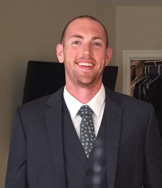Speech Therapy Helps People With Parkinson’s Disease
Each May, Speech Language Pathologists across the nation celebrate Better Hearing and Speech Month by bringing awareness to impairments that impact speech, language, and hearing. These deficits impact people’s ability to live independent and productive lives. Many diseases and disorders such as head and neck cancer, Parkinson’s Disease, stroke, dementia, and concussions can impact the ability to communicate and swallow. With the growing number of retirees residing in Sussex County, there is also an increase in the amount of communication and swallowing deficits. Being educated on how diseases and disorders impact a person and what services are available is important to maintaining an individual’s independence and quality of life.
One of the diseases mentioned above is Parkinson’s. It is a neurodegenerative brain disorder that progresses slowly in most individuals. It is a result of the brain’s decreased production of a neurotransmitter called dopamine. Decreased dopamine results in decreased regulation of movements, body, and emotions. Dopamine helps us have smooth, coordinated movements. Signs and symptoms of Parkinson’s include decreased facial affect, low speaking volume, monotone speech, tremors, change of posture, change of walking pattern, rigidity, and decreased balance. Although Parkinson’s itself is not fatal, complications such as falls, inability to express one’s wants/needs, and inhalation of food or liquid (aspiration) make it the 14th top cause of death, according to the Centers for Disease Control and Prevention (CDC).
There is no cure for Parkinson’s. Research has proven that Speech Therapy and Physical Therapy to treat the symptoms can result in increased quality and duration of life. Speech Therapy teaches individuals with Parkinson’s to speak louder to achieve clarity through a variety of exercises to increase breath support, vocal cord strength, and precision of the lips/tongue while speaking. Speech Therapy for difficulty swallowing (dysphagia) would include specific strengthening exercises for the swallowing muscles and increase airway protection to minimize the risk of food or liquid “going down the wrong pipe.” When food or liquid goes down the wrong pipe, it is called aspiration. Aspiration can result in a variety of respiratory complications including recurrent pneumonia that could lead to unnecessary hospitalization.
Beebe’s Speech Language Pathologists, located in Millville, Rehoboth, Georgetown, and Lewes, encourage you to celebrate Better Hearing and Speech Month by increasing your awareness of communication and swallowing deficits. If you or someone you know could benefit from Speech Therapy, please contact us at (302) 645-3235 or go to thePhysical Rehabilitation page.

Nicholas P. Bollinger, M.S., CCC-SLP, is a Lead Speech Language Pathologist at Beebe Healthcare.
